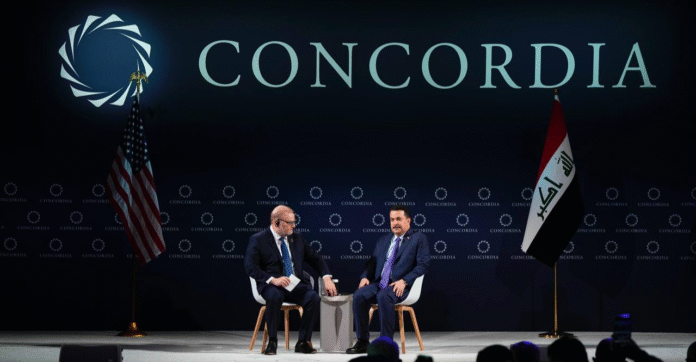US tariffs on Iraq and Iran’s influence have become a new flashpoint in Washington’s global trade strategy. The Trump administration recently announced steep tariffs targeting Baghdad. Many observers believe this move is designed to pressure Iraq politically while reducing Tehran’s reach in the region.
The White House raised tariffs on Iraq to 35 percent in late July. Initially, the administration suggested a lower rate of 30 percent. However, negotiations failed, and Washington moved forward with the higher figure. According to trade data, Iraq exported $1.7 billion worth of goods to the US in 2024. At the same time, imports from the US, mostly crude and refined oil, reached $7.5 billion. This imbalance created a deficit of nearly $6 billion in Iraq’s favor.
Analysts argue that US tariffs on Iraq and Iran’s influence cannot be separated. Washington sees Baghdad as a crucial battleground for limiting Tehran’s political leverage. Experts also suggest that the decision carries another strategic layer. The administration may be pushing Iraq to reconsider its regional alliances, particularly toward Israel.
In July 2025, the Trump administration threatened tariffs on 14 countries. The list included strong allies such as Japan and South Korea. All faced demands for new trade agreements or duties of up to 40 percent. Iraq’s addition to the list surprised many, given its relatively small trade profile with Washington. Yet, the political message appeared stronger than the economic one.
Within Iraq, concerns are mounting. Politicians question whether the tariffs will destabilize the Reconstruction and Development coalition. The coalition relies on foreign investment and economic stability to secure support ahead of elections. If trade with Washington declines, Baghdad may face new economic challenges at a sensitive time.
Observers believe the tariffs could also impact Iraq’s ties with the US. Relations between both countries remain complex, shaped by decades of military, political, and economic involvement. Some analysts predict closer alignment between Baghdad and Tehran if Washington continues its pressure campaign. Others argue Iraq may instead seek broader partnerships to offset its growing isolation.
Ultimately, US tariffs on Iraq and Iran’s influence mark a turning point. They highlight Washington’s willingness to use trade as a political weapon. As the situation develops, Iraq faces difficult choices on its economic future and its regional alliances.


